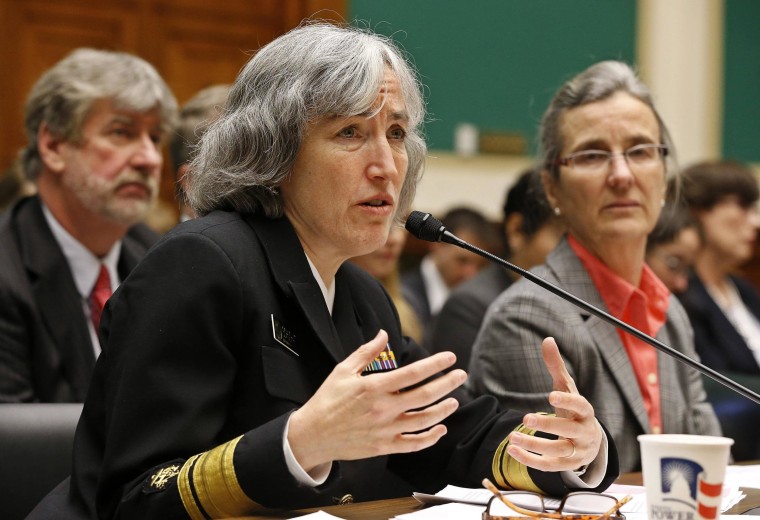With a political vaccination debate emerging as a measles outbreak stretches to 14 states, a panel of federal health officials told members of Congress that vaccinations are safe and an important tool for public health policy.
Dr. Ann Schuchat from the Centers for Disease Control and Prevention (CDC) warned “measles are literally a plane ride away” and when people are not immunized, it “has the chance to spread.” All four officials who testified Tuesday dismissed concerns about any link between vaccines and developmental disorders such as autism.
“Vaccines save lives and are the best way for parents to protect their children from vaccine preventable diseases,” Schuchat emphasized.
The health directors were testifying at a House Energy and Commerce subcommittee hearing that was scheduled to look into the U.S. public health response to the seasonal flu, but the concerns over the measles took center stage. Officials say a large majority of those who have contracted measles were not vaccinated.
"It’s really a slam dunk what the decision should be."
“In addition to understanding why this year’s flu vaccine missed so badly and what should be done to protect the public in future years, I hope we can use this platform to educate the public in advance of vaccine development in interest of public health,” Chairman Tim Murphy, R-Penn., told the panel.
The vaccination debate rose to the top of the political conversation this week after President Obama weighed in on Sunday. In an interview with NBC's Savannah Guthrie, the president insisted there is “every reason to get vaccinated, but there aren't reasons to not,” adding that the science is “pretty indisputable.”
That led to a flurry of responses from potential 2016 candidates. New Jersey Governor Chris Christie, told reporters while traveling in England that he vaccinates his kids but raised eyebrows when he said the government must decide the balance in allowing parents to have a choice in vaccinating their children.
His office later clarified those comments, saying that Christie “believes vaccines are an important public health protection and with a disease like measles there is no question kids should be vaccinated.”
Republican Sen. Rand Paul, told CNBC that vaccinations are a good thing, but should be voluntary because of stories of children developing mental disorders after getting vaccinations. Dr. Ben Carson, called vaccines “extremely important.”
Rep. Marsha Blackburn, R-Tenn., before questioning the officials about the risks of vaccinations held up a newspaper and said “this is far too serous of an issue to be treated as a political football.” “People still die from measles,” she added.
Dr. Anthony Fauci, Director of the National Institute of Allergy and Infectious Diseases, told lawmakers the measles vaccine is “highly effective,” saying parents should vaccinate “without a doubt.” “It’s really a slam dunk what the decision should be,” Fauci testified.
